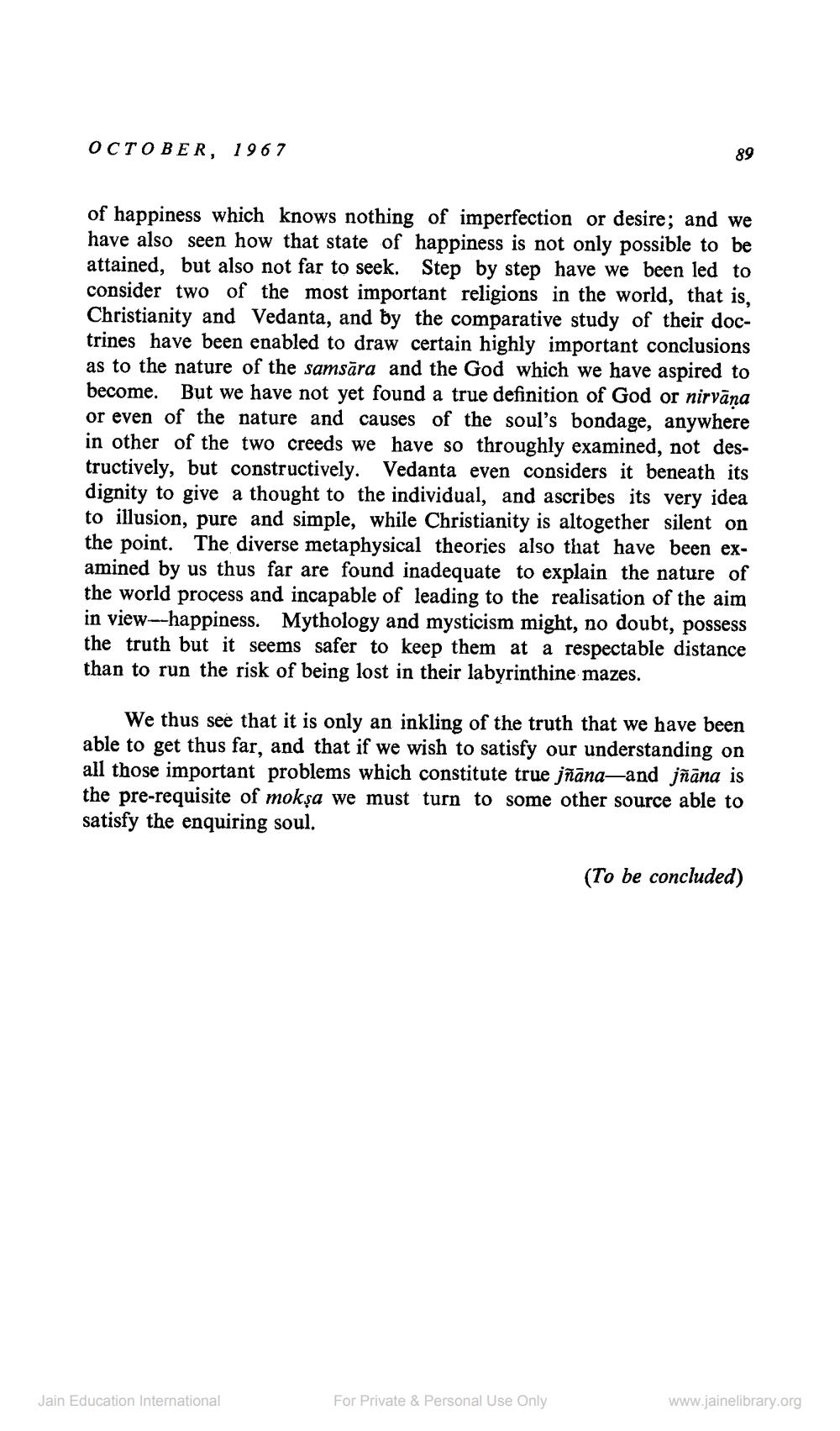________________
OCTOBER, 1967
of happiness which knows nothing of imperfection or desire; and we have also seen how that state of happiness is not only possible to be attained, but also not far to seek. Step by step have we been led to consider two of the most important religions in the world, that is, Christianity and Vedanta, and by the comparative study of their doctrines have been enabled to draw certain highly important conclusions as to the nature of the samsāra and the God which we have aspired to become. But we have not yet found a true definition of God or nirvana or even of the nature and causes of the soul's bondage, anywhere in other of the two creeds we have so throughly examined, not destructively, but constructively. Vedanta even considers it beneath its dignity to give a thought to the individual, and ascribes its very idea to illusion, pure and simple, while Christianity is altogether silent on the point. The diverse metaphysical theories also that have been examined by us thus far are found inadequate to explain the nature of the world process and incapable of leading to the realisation of the aim in view--happiness. Mythology and mysticism might, no doubt, possess the truth but it seems safer to keep them at a respectable distance than to run the risk of being lost in their labyrinthine mazes.
We thus see that it is only an inkling of the truth that we have been able to get thus far, and that if we wish to satisfy our understanding on all those important problems which constitute true jñāna—and jñāna is the pre-requisite of moksa we must turn to some other source able to satisfy the enquiring soul.
(To be concluded)
Jain Education International
For Private & Personal Use Only
www.jainelibrary.org




